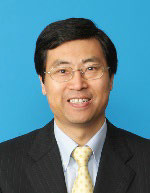
Ninshu Ma
Osaka University, Japan
Professor
Ninshu MA received his doctoral degree in Engineering from Osaka
University in 1994 and went on to work for 21 years as a
professional consultant in the field of computer-aided
engineering at Japan Research Institute (JRI). Now, he is
working as a professor at JWRI. Therefore, he has a
comprehensive viewpoint in both industry and academic fields.
Furthermore, he is a leader of the Global and Industrial
Collaborative Research Center for Computational Welding Science
(CCWS) to establish a framework of the computational welding
science with the rapid progress in computer technology to meet
various demands from the industry. He has more than 300
international papers related to computational welding science.
coming more...